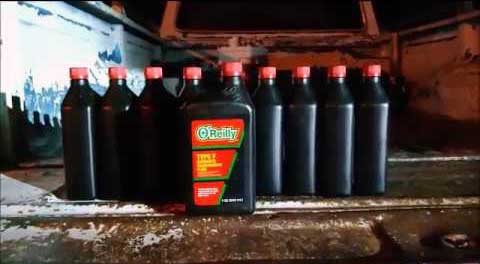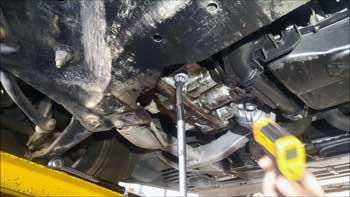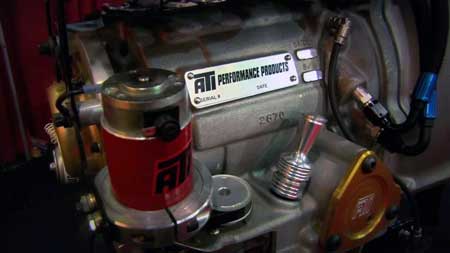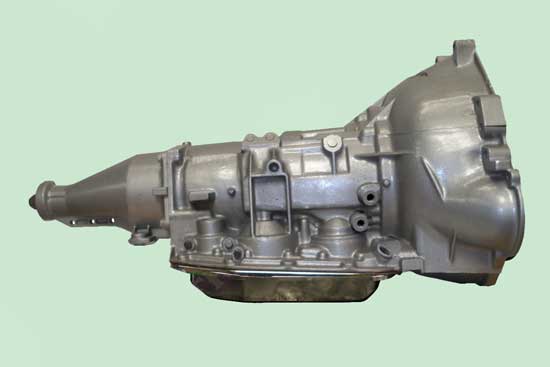C4 Transmission Fluid: The Ultimate Guide for better Performance

The smooth operation of any vehicle relies on a number of key components, and one of the most important is the C4 transmission fluid.
This fluid is vital for any car or truck’s transmission system and ensures the gear shift is smooth and efficient.
What Is C4 Transmission Fluid?
Definition Of C4 Transmission Fluid
C4 transmission fluid is a specialized fluid used for lubrication, cooling, and cleaning in automatic transmissions.
Specifically, it is designed for use in ford’s c4 transmission series – an automatic transmission commonly used in muscle cars, hot rods, and other performance vehicles.
Different Types Of C4 Transmission Fluid:C4 Transmission Fluid Type
There are different types of c4 transmission fluid, each with its unique formulation and compatibility with the components of the transmission.
- Type f: This type of c4 transmission fluid is the original fluid designated by ford for use in c4 transmissions. It has higher friction properties, making it suitable for racing and heavy-duty applications.
- Dexron/mercon: This type of fluid is a less aggressive formulation designed for moderate to easy driving conditions, providing better low-temperature performance and longer service intervals.
- Maxifluid DX-III: Maxifluid DX-III is a multi-functional transmission fluid suitable for Volkswagen, Audi, BMW, and other European vehicles.
Features And Composition Of C4 Transmission Fluid
C4 transmission fluid is specially formulated to meet the specific requirements of c4 transmissions.
- Composition: It typically consists of a mixture of base oils with additives that help keep the transmission clean, reduce friction, and protect the transmission from wear and tear.
- Color: C4 transmission fluid can come in different colors, depending on the specific type and brand. Type f fluid is typically red, while dexron/mercon fluid is usually orange or brown.
- Viscosity: The viscosity of c4 transmission fluid is critical for proper transmission operation. Type f fluid has a higher viscosity than dexron/mercon fluid, providing greater frictional properties and performance under high-stress conditions.
C4 transmission fluid is a specialized lubricant designed for use in the c4 transmission series.
Read More About: 4L60E Transmission Fluid
C4 Transmission Fluid And Filter Change
- Step 1: Park your vehicle on a level surface and turn off the engine.
- Step 2: Locate your transmission pan and drain the old fluid by removing the pan bolts.
- Step 3: Carefully remove the old filter from the transmission.
- Step 4: Place the new filter in the same location as the old one.
- Step 5: Add the new transmission fluid.
- Step 6: Reinstall the transmission pan and replace the bolts where needed.
- Step 7: Return to the garage to top off the transmission fluid and make any necessary adjustments.
C4 Transmission Fluid Capacity With Torque Converter
The average capacity for a conventional torque converter-equipped transmission is 8 quarts.
How Much Fluid Does A C4 Transmission Hold
Generally speaking, you should expect to use around 8 quarts of fluid when filling up your C4 transmission.
How Many Quarts Of Transmission Fluid Goes In A C4 Transmission
It depends largely on your vehicle’s transmission type, but 8 quarts of transmission fluid is generally the best course of action.
C4 Transmission Fluid Check- How To
To get started, you’ll need to:
- Locate the Transmission Fluid Dipstick
- Pop the Hood and Pull Out the Dipstick
- Clean and Re-insert the Dipstick
- Check the Color and Odor of the Fluid
- Test for Contamination
C4 Transmission Fluid Flow
It’s no secret that fluid flow plays a significant role in the health and performance of any car or truck.
The C4 transmission, like all other transmissions, depends on proper fluid flow to deliver maximum power and efficiency.
Also Check: T56 Manual Transmission
C4 Transmission Fluid Capacity Dry
Having the right amount of fluid in your C4 transmission is essential, and most C4 transmissions have a capacity of 8 quarts when it’s dry.
C4 Transmission Fluid Temperature Sensor
The C4 transmission fluid temperature sensor is integral to a vehicle’s maintenance. With its improved accuracy and ability to measure temperature more accurately, it helps a vehicle’s system run more efficiently, increasing engine performance and extending the life of your car.
C4 Transmission Fluid Change Interval

The C4 transmission fluid change interval is typically every 30,000 miles. It should be done more frequently if you experience any symptoms: grinding, jerking, delayed engagement, leaking fluid, or difficulty shifting gears.
C4 Transmission Fluid Pressure Sensor
The C4 transmission fluid pressure sensor is on the transmission itself, usually in a dedicated spot.
Though it can sometimes be hidden, a qualified mechanic can easily access the C4 transmission fluid pressure sensor, and it doesn’t require too much work.
C4 Transmission Fluid Pressure Switch
The purpose of C4 transmission fluid pressure switches is to regulate the pressure of the fluid within the transmission.
Not only does this help to regulate the power and shifting of the vehicle, but it also plays an integral role in preventing damage caused by fluctuating pressure within the transmission system.
What Is The Difference Between C6 And C4?
The primary difference between these two engines lies in their number of cylinders. The C6 engine has 8 cylinders, while the C4 engine has 6 cylinders.
Each engine’s cylinder configuration and size difference results in different amounts of power and torque from the engines.
What Is Allison C4 Transmission Fluid?
Allison C4 transmission fluid is specifically designed for use in cars equipped with the Allison C4 transmission system.
It’s a fully synthetic transmission fluid that’s both durable and effective at maintaining the proper operation of your car’s transmission system.
Also Read: 6L80E Transmission Fluid
What Is The Ratio Of A C4 Transmission?
The ratio of a C4 transmission, also known as the gear ratio, is critical when selecting a particular transmission.
Generally speaking, a lower gear ratio allows more efficient torque transfer, and a higher one provides more speed. For C4 transmissions, this ratio is typically 2.46 low.
What Does A C4 Transmission Fit?
The C4 transmission is a three-speed automatic transmission that was first introduced in 1964 and used in production until 1982. It was mainly found in Ford F-series trucks from 1965 to 1981.
What Oil Is Best For C4 Transmission?
When choosing which oil is best for the C4 transmission, one of the most commonly recommended options is the Ford Mercon V transmission fluid. Ford designed this product specifically for its vehicles with a C4 transmission.
Can I Use C3 Oil Instead Of C4?
The answer is ‘No.’ C3 and C4 are two distinct types of oil formulated to meet different automotive needs.
C3 oil is usually a synthetic blend designed to achieve certain performance characteristics in either turbocharged or supercharged engines.
Which Oil Is Better C3 Or C4?
C3 is the better choice as it will provide increased protection against wear and tear and ensure you get your vehicle’s best performance.
On the other hand, if you have an everyday driver, conventional C4 oil will cover your needs.
Please Read More About: 700R4 Transmission Fluid
The Benefits Of Selecting The Right C4 Transmission Fluid
Using the correct type of c4 transmission fluid is crucial for maintaining your vehicle’s performance. Here are some benefits of selecting the right c4 transmission fluid:
- It ensures smooth gear shifts and reduces wear and tear of the transmission.
- It protects the internal parts of the transmission from overheating, corrosion, and rust.
- It enhances the overall lifespan of the transmission.
- It improves fuel efficiency, which translates to more savings on your gas bills.
Impact Of Using The Wrong C4 Transmission Fluid
Using the wrong type of transmission fluid can have several negative impacts on your vehicle’s performance. Here are some of the effects it can have:
- It can cause the transmission to overheat, leading to internal damage or failure.
- It can result in harsh gear shifts and slippage.
- It can reduce fuel efficiency, causing you to spend more money on gas.
- It can cause corrosion and rust to internal transmission parts, reducing its lifespan.
Risks Of Using The Wrong C4 Transmission Fluid On Transmission Functionality
Using the wrong type of transmission fluid can lead to serious damage to your vehicle’s transmission. Here are some of the risks of using the wrong c4 transmission fluid:
- It can cause permanent damage to the transmission, resulting in the need for expensive repairs or a complete replacement
- It can void your warranty, resulting in extra costs to fix any damages to the transmission
- It can lead to safety concerns, as it can result in a loss of control of the vehicle while driving.
How To Choose The Right C4 Transmission Fluid
Understanding The Specific Requirements Of Your Transmission
Before choosing the right c4 transmission fluid, it’s crucial to first have a clear understanding of your transmission’s specific requirements. Here are some things to consider:
- Check your vehicle owner’s manual to see the recommended type of c4 transmission fluid for your car.
- Consider the age and mileage of your vehicle, as well as the transmission’s condition, as this will impact the type of fluid needed.
- Determine the type of driving you typically do. If you frequently haul heavy loads or drive in extreme conditions such as high temperatures or steep grades, you will need a different type of fluid than a person who mainly drives in the city.
Factors That Determine The Choice Of C4 Transmission Fluid
Several factors determine the choice of the right c4 transmission fluid. Here are some critical considerations to keep in mind:
- Cost: Different types of c4 transmission fluid come at different costs. Synthetic fluid and high-performance fluids are more expensive than dexron/mercon fluids.
- Condition of the transmission: If your transmission is old or has been running for an extended period, you may need to use a high-performance fluid to avoid causing damage.
- Environmental conditions: If you live in an area with extreme temperatures or drive in rough terrain, you will need a fluid that can withstand the added strain.
- Vehicle make and model: Different makes and models of vehicles have unique transmission fluid requirements, so it’s crucial to research your specific car.
C4 Transmission Fluid Maintenance
Maintaining your c4 transmission fluid is essential to keep your vehicle running smoothly. Here are a few key points to keep in mind:
Regularity Of C4 Transmission Fluid Changes
Regularly changing your c4 transmission fluid helps to keep your vehicle running smoothly.
- Consistently check the c4 transmission fluid level and quality to catch any issues early.
- The recommended interval for changing your c4 transmission fluid varies between different car models, but it’s usually between 30,000 to 60,000 miles. Ensure you refer to your owner’s manual for accurate information.
- Never skip the recommended c4 transmission fluid changes to prevent costly repairs in the future.
Appropriate Techniques To Monitor The Condition Of C4 Transmission Fluid
It’s always important to check the condition of your c4 transmission fluid. Here are a few appropriate techniques to monitor its condition:
- The transmission dipstick is the easiest way to check for the c4 transmission fluid level and quality. Be mindful of the colour, texture, and any unusual odours.
- Be sure to take your vehicle to a professional mechanic for an extensive check on your c4 transmission fluid and transmission system, at least once a year.
Frequently Asked Questions For C4 Transmission Fluid
1. What Is A C4 Transmission Fluid?
C4 transmission fluid is a type of automatic transmission fluid that’s specifically designed for ford c4 transmissions. It’s a high-quality fluid that’s engineered to ensure reliable and long-lasting performance.
2. How Often Should I Change My C4 Transmission Fluid?
It’s generally recommended to change your c4 transmission fluid every 30,000 to 60,000 miles.
However, it’s important to check your vehicle’s owner’s manual for the manufacturer’s specific recommendations.
3. What Are The Benefits Of Using C4 Transmission Fluid?
Using c4 transmission fluid helps to ensure that your transmission operates smoothly and efficiently.
It also helps to minimize wear and tear on your transmission, which can extend its lifespan and save you money in the long run.
4. Can I Use Other Types Of Transmission Fluid In My C4 Transmission?
No, it’s important to use c4 transmission fluid in your ford c4 transmissions. Using other types of fluid can cause damage to your transmission and impact its performance.
5. How Do I Check My C4 Transmission Fluid Level?
First, park your vehicle on a level surface and leave the engine running. Then, locate the dipstick and remove it.
Wipe the dipstick clean, reinsert it, and then remove it again. The fluid level should be between the “full” and “add” marks on the dipstick.
Read More About: 4L60E Transmission Fluid
Conclusion
The C4 transmission fluid is an essential component to ensure the proper functioning of your C4 vehicle.
It helps maintain vehicle performance and overall protection and is vital for your vehicle’s safe and efficient operation.
Regular maintenance of the fluid and replacing it in a timely manner can ensure that your vehicle operates as designed and at peak performance.






